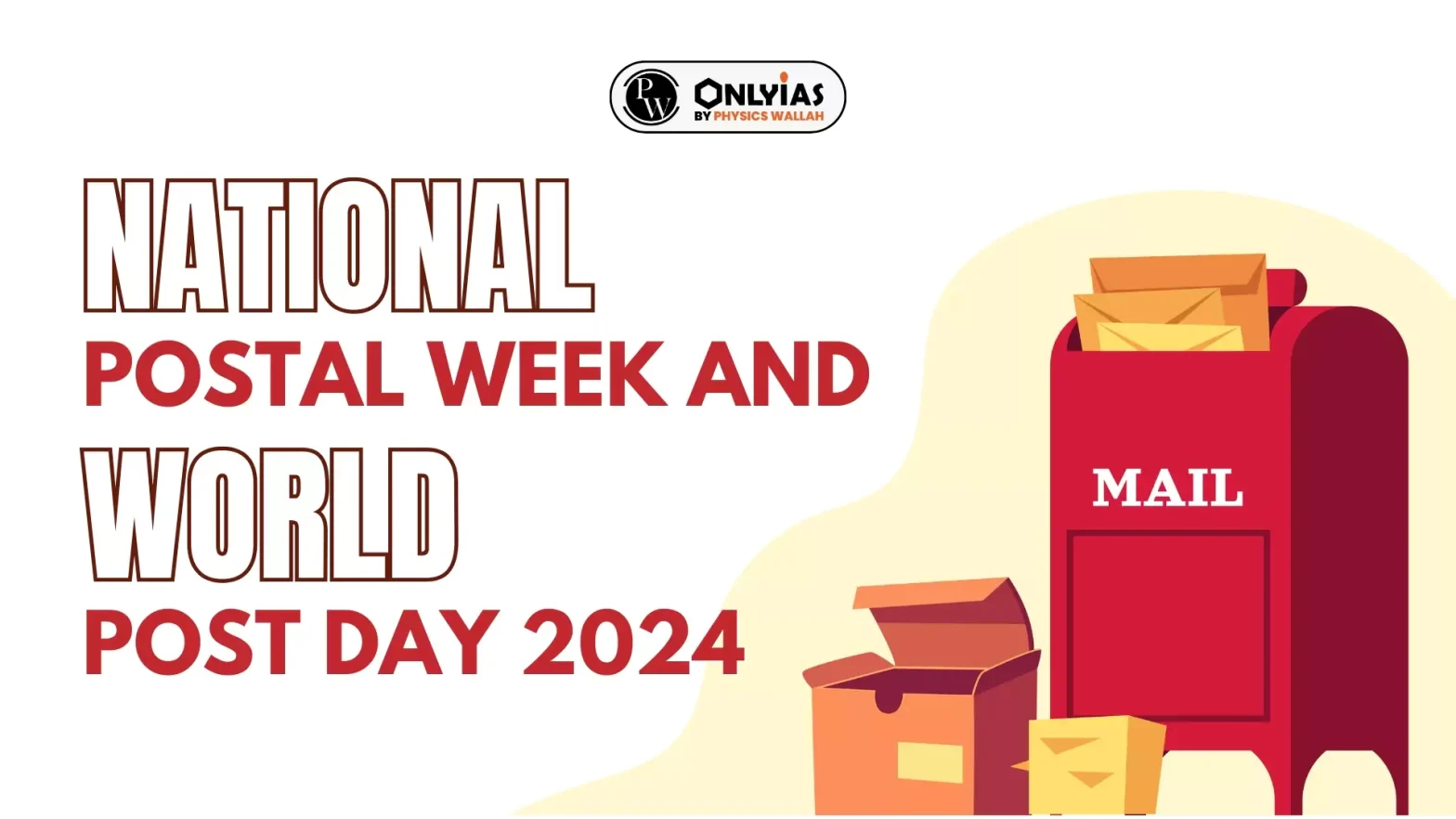National Postal Week and World Post Day are celebrated from 9th Oct to 15th Oct, every year. Learn more about National Postal Week and World Post Day here.

National Postal Week: Every year, National Postal Week is celebrated from 9th Oct to 15th Oct, starting with World Post Day on 9th Oct, to honor this integral service of the postal system. It is celebrated every year to highlight the importance of postal services in connecting people, supporting businesses, and contributing to global communication. The year 2024 marks another opportunity to acknowledge the vital role that postal systems play in today’s digital world, and their continuous evolution to remain relevant.
The National Postal Week 2024 is being celebrated from October 9 to October 15. This week-long observance is organized by the Indian Postal Department to raise awareness about the various postal services and to promote the role of the postal system in the daily lives of people, businesses, and the government.
Each day of this week is dedicated to specific services, such as Postal Life Insurance Day, Business Development Day, and Philately Day, focusing on the different aspects of postal work.
| Day | Focus |
| World Post Day | Celebrating the global postal system |
| Savings Bank Day | Promoting financial services |
| Philately Day | Spreading awareness of stamp collection |
| Business Development Day | Encouraging business-related postal services |
| Mail Day | Emphasizing the core function of mail delivery |
National Postal Week also aims to educate the public about new initiatives launched by the postal department, particularly in rural areas where postal services act as a bridge for communication and financial inclusion.
World Post Day is celebrated on October 9 each year to commemorate the anniversary of the establishment of the Universal Postal Union (UPU) in 1874. The UPU plays a critical role in organizing international postal services and facilitating the exchange of letters and parcels across borders.
As Universal Postal Union (UPU) is set to celebrate its 150th anniversary, World Post Day 2024 2024 theme is “150 years of enabling communication and empowering peoples across the nation“. This theme highlights how postal services are evolving by integrating technology to improve efficiency and better serve customers. From e-commerce delivery to financial services in remote areas, postal systems are more dynamic than ever, adapting to the demands of a connected global economy.
The Postal History of India dates back several centuries, with structured postal services established during the reign of emperors such as Chandragupta Maurya. However, it was the British who formalized the postal system during their rule in India. The Indian postal system became one of the largest and most efficient in the world, a distinction it retains to this day.
The Postal System During the British Era was introduced in the mid-19th century. Sir Warren Hastings, the then Governor-General of Bengal, is credited with organizing the postal system during British rule, with Lord Dalhousie further revolutionizing it in 1854 by establishing a uniform postal rate. The British-era postal system enabled the efficient movement of letters across vast distances, using both road and rail networks. In 1852, the first postage stamp of India, known as the “Scinde Dawk,” was introduced.
The British established the India Post which became the backbone of communication in colonial India, with the establishment of post offices and letter collection systems in rural and urban areas alike.
The structured postal system in India, as we know it today, was introduced by Lord Dalhousie in 1854. He played a significant role in laying the foundation of the modern postal system by standardizing postal rates, introducing postage stamps, and establishing postal routes across the subcontinent. The India Post Office Act of 1854 laid down the legal framework for the postal system and its services, which were expanded further after independence.
In the digital age, where emails and instant messaging dominate communication, postal services remain essential, especially in rural and remote areas. Postal services like the Indian Postal Service offer a range of services that go beyond mere mail delivery, including savings schemes, insurance services, and logistical support for e-commerce.
The celebration of National Postal Week and World Post Day highlights the resilience and continued relevance of postal systems, especially in bridging the digital divide and providing essential services in regions that lack access to technology. Postal systems play a significant role in financial inclusion, particularly through their savings and insurance schemes, which are popular in rural India.
Sign up for the PWOnlyIAS Online Course by Physics Wallah and start your journey to IAS success today!
The National Postal Week 2024 is being celebrated from October 9 to October 15, with each day focusing on different postal services.
World Post Day is celebrated on October 9 every year, marking the anniversary of the Universal Postal Union (UPU).
The theme for World Post Day 2024 is 150 years of enabling communication and empowering people across the nation.
The modern postal system in India was introduced by Lord Dalhousie in 1854, who implemented uniform postal rates and launched postage stamps.
The postal system today offers a wide range of services, including mail delivery, savings accounts, insurance, e-commerce logistics, and financial inclusion, especially in rural areas.
<div class="new-fform">
</div>